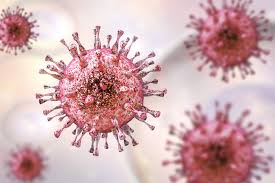Source: University of Alabama at Birmingham Mar 02, 2019 6 years, 11 months, 1 hour, 10 minutes ago
In a paper recently published in the
Journal of Infectious Diseases, researchers examined the effect of vaginal tenofovir 1 percent gel use on the risk of acquiring herpes simplex virus type 2, or HSV-2. The study was conducted through a secondary analysis of data from the VOICE study.
According to the Centers for Disease Control and Prevention, more than one in six Americans ages 14 to 49 are infected with genital herpes. HSV-2 infection is the most common cause of genital herpes and also enhances the risk of acquiring and transmitting HIV. No vaccine currently exists for HSV-2.
"Women are especially susceptible to infection because it is more easily transmitted from an infected man to his female sex partner than vice versa," said corresponding author Jeanne Marrazzo, M.D., director of the Division of Infectious Diseases at the University of Alabama at Birmingham in an exclusive interview with Thailand Medical News. "A product that protects against HSV-2 could have an
important public health impact."
Of the 566 HSV-2-negative participants, Marrazzo and her colleagues found that overall use of vaginal tenofovir 1 percent gel was associated with a 40 percent reduction of HSV-2 acquisition. Over the follow-up period, 92 new cases of HSV-2 occurred, with 77 in women with no plasma tenofovir detected and 15 with plasma tenofovir. Tenofovir measured in plasma was used as measure of gel use.
Marrazzo's study reanalyzed data collected in the VOICE study, now specifically looking at the subgroup of women that adhered to daily gel usage and their rate of HSV-2 acquisition relative to women who did not adhere to gel usage.
In the original VOICE study, investigators studied HIV-1 pre-exposure prophylaxis in reproductive-age women in South Africa, Uganda and Zimbabwe. Participants were asked to regularly use study products, including vaginal tenofovir 1 percent gel, but adherence was low.
The recent study findings also align with the results of CAPRISA 004, a previous tenofovir gel study on HSV-2 acquisition reduction. The CAPRISA 004 study tested gel application strictly within 12 hours before and after vaginal intercourse.
"While both studies focus on the same product, our study is distinct in various ways, such as the emphasis on daily usage," Marrazzo said. "With our new findings, we can pay more attention to studying products combining tenofovir with other preventive materials in order to protect against HSV-2 and HIV—addressing both infections with multipurpose prevention products will maximize protective impact for women .”
Research is also underway by other entities as to how such gels can also help both heterosexual and homosexual men in prevention against herpes and other STDs.
Reference:
Jeanne M Marrazzo et al. Tenofovir gel for prevention of herpes simplex virus type-2 acquisition: findings from the VOICE Trial, The Journal of Infectious Diseases (2019). DOI: 10.1093/infdis/jiz045
"> 